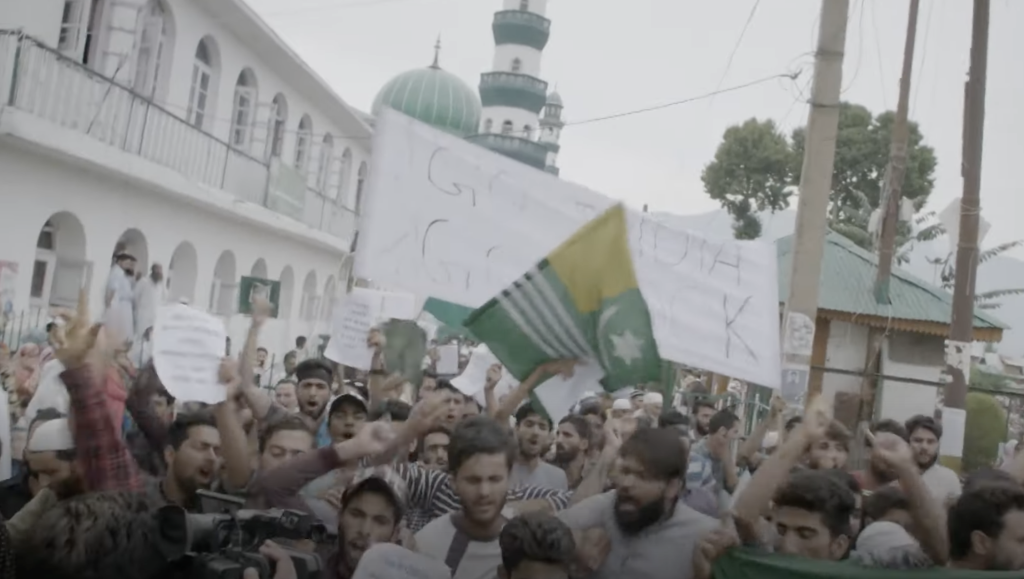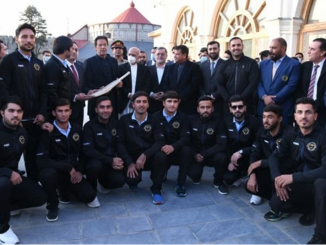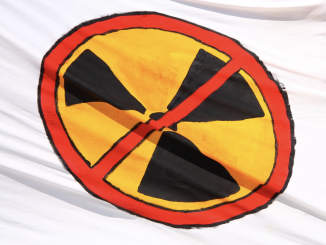
Historically, weaker nations and communities have often been ruthlessly exterminated by the stronger in wars, ethnic clashes, tribal rifts, and imperial conquests. These exterminations were fictitiously justified through the then prevalent assumed theories and racist ideologies, such as ‘Social Darwinism’, ‘White Man’s Burden’, ‘Jewish Virus’, and ‘Superior Races’, etc. The extermination of the Tutsis by the Hutus in Rwanda, the mass killings of Jews by the Nazis in Europe, and the massacre of Muslims by Serbs in Bosnia are prominent examples of genocides during the last two centuries. In the modern world, genocide is considered the most despicable crime that can be committed against humanity.
The United Nations General Assembly (UNGA) declared genocide a crime under a resolution adopted on 11th December 1946. The resolution states, ‘Genocide is a denial of the right of existence of entire human groups. Such denial shocks the conscience of mankind, results in great losses to humanity in form of cultural and other contributions represented by these human groups, and is contrary to moral law and the spirit and aims of the United Nations.’ Subsequently, on 9th December 1948, a legal instrument titled ‘Convention on the Prevention and Punishment of the Crime of Genocide’ (CPPCG), also denoted as the Genocide Convention, was adopted by the UNGA and provided a comprehensive definition of the term ‘genocide’ as well as obligations of the signatory states. Article 2 of the Genocide Convention 1948 defines genocide as ‘any of the following acts committed with intent to destroy, in whole or in part, a national, ethnical, racial or religious group, as: a) Killing members of the group; (b) Causing serious bodily or mental harm to members of the group; (c) Deliberately inflicting on the group conditions of life calculated to bring about its physical destruction in whole or in part; (d) Imposing measures intended to prevent births within the group; (e) Forcibly transferring children of the group to another group.’
Under modern Human Rights and International Law, states and non-state entities may face serious consequences if they blatantly commit genocide against a group of people associated with any religion, nation, ethnicity, or ideology. Ironically, many states continue to employ systematic tools to suppress communities and exploit loopholes in international law to extinguish freedom struggles and achieve their interests. The term ‘systematic genocide’ can be defined as the adoption and application of various tools of genocide by states as instruments of their policies to exterminate a specific group of people. The oppression of Palestinians by Israel, the mass killing of Rohingya Muslims by the Myanmar government-supported elements, and the organized extermination of Kashmiris by India are notable examples of systematic genocide in contemporary times.
Genocide must be stopped wherever it is taking place. However, the case of genocide in Indian Illegally Occupied Jammu and Kashmir (IIOJK) needs special attention as it is a disputed territory between two nuclear-armed nations, India and Pakistan, and has regional and global implications. Knowing fully well that Jammu and Kashmir is a disputed territory as per UNSC resolutions, India has been using most acts of genocide under Article 2 of the Genocide Convention against the people of IIOJK to prolong and legitimize its illicit occupation. The Indian government has already started the ‘settler-colonial’ project to alter the demographic arrangement of IIOJK through legislative and administrative measures. By abrogating Articles 370 and 35A of its constitution, New Delhi has given legal cover to its efforts to convert the Muslim majority of Jammu and Kashmir into a minority, which will not only serve its purpose of ‘eliminating the natives’ but also go in its favor if plebiscite takes place in the future.
Kashmiris are also subjected to Indian atrocities including mass killings, torture, enforced disappearances, rape, use of pellet guns against civilians, and denial of fundamental rights that are clear violations of the Genocide Convention. The 2021 annual report by the Legal Forum for Kashmir reveals that 257 innocent civilians were killed, 1197 arrested, 233 injured, and 130 structures damaged by Indian forces in 2021. Moreover, restrictions on daily life activities, closure of internet services, and increased deployment of Armed Forces empowered under the infamous ‘Armed Forces Special Powers Act’ (AFSPA) in IIOJK have made the lives of Kashmiris a living hell. This is what is referred to as ‘deliberately inflicting on the group conditions of life calculated to bring about its physical destruction in whole or in part’ under the Genocide Convention, 1948.
India’s blatant disregard for international law and human rights indicates that it desires ‘conflict management’ rather than ‘conflict resolution. By managing and prolonging the Jammu and Kashmir conflict, India plans to have enough time to implement its ‘colonial-settler’ designs in order to change the demography of IIOJK and eliminate the distinct identity of Kashmiris.
The torchbearers of human rights, multilateralism, and signatories of the Genocide Convention need to put pressure on India to stop its systematic genocide of the people of IIOJK. The dispute should be resolved in accordance with the aspirations of the Kashmiri people for the stability of the region as well as to stop the genocide of innocent men, women, and children.




Be the first to comment